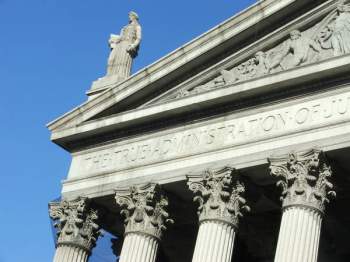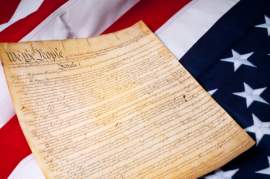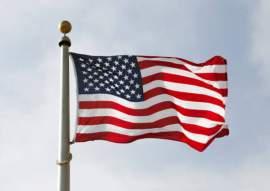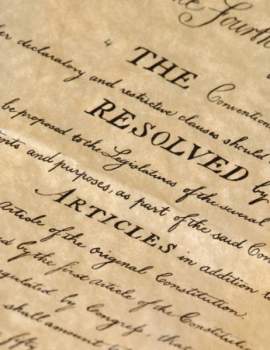
Twenty First Amendment

Popular In Constitution
Purpose Of Lifetime Appointment And Pros And Cons Enumerated Powers Bicameral Legislature Background Article 3 Of The Constitution We The People 1st Amendment Who Wrote The Constitution Judicial Review Equal Protection Clause 5th Amendment 10th Amendment Three Fifths Compromise
The 21st Amendment is the only one introduced that would completely repeal another Amendment: the 18th AmendmentIt is clear that the 21st Amendment was a result of the failed prohibition of alcohol in the United States. Though consumption generally declined, organized crime and crime rates soared to levels never experienced by Americans before.
Prohibition only applied to the sale, manufacture, and transportation of alcoholic beverages, but the actual consumption of it remained legal. Even though this would make alcohol extremely difficult to obtain, there would be those that would find illegal means to get their hands on alcohol and ample opportunity existed to derive a profit from such practice. Bootleggers, speakeasies, and the rise of organized crime all were birthed as a reaction to the 18th Amendment. Criminals, such as notorious Chicago gangster Al Capone, would become millionaires and a general lawlessness would proliferate in the United States.
Many would simply ignore the provisions set forth by Prohibition, corruption was common among law enforcement, and drinking would become a symbol of rebelliousness, which heightened its appeal. It became apparent that Prohibition, though a noble attempt and experiment, generally brought upon more negative impacts that any positive gains to be brought from reducing the consumption of alcohol.
The apparent need to reverse Prohibition became the
general sentiment of the country. However, its overturning would prove to be
more complicated because of the political power the Temperance Movement had
garnered through lobbying. Congress would then have to employ one of two
methods for ratifying Constitutional Amendments, which had never been used
before.
Normally,
ratification by State Legislature was the avenue taken for Amendment
ratification, requiring the approval of three-fourths of the states. The other
method, as provided by the United States Constitution, is by State conventions.
State conventions abide by a loose ratification process, which is similar to
that of the "one-state, one-vote" national referendum. The
21sth Amendment would be the only Amendment to the United States Constitution
to be ratified using this method.
The overturning of Prohibition would, therefore,
delegate responsibility of regulating alcohol laws to the states. Even though
the 21st Amendment was approved, several states continued to follow the
doctrine of Prohibition. For example, Missouri would remain alcohol-free until
1966, while Kansas did not allow public bars until 1987. Some states go as far
as allowing counties and/or municipalities to impose their own regulations
regarding alcoholic beverages. The interpretation of the provisions in the
second section of the 21st Amendment allowed for the states to maintain the
right to control alcoholic beverages.


















